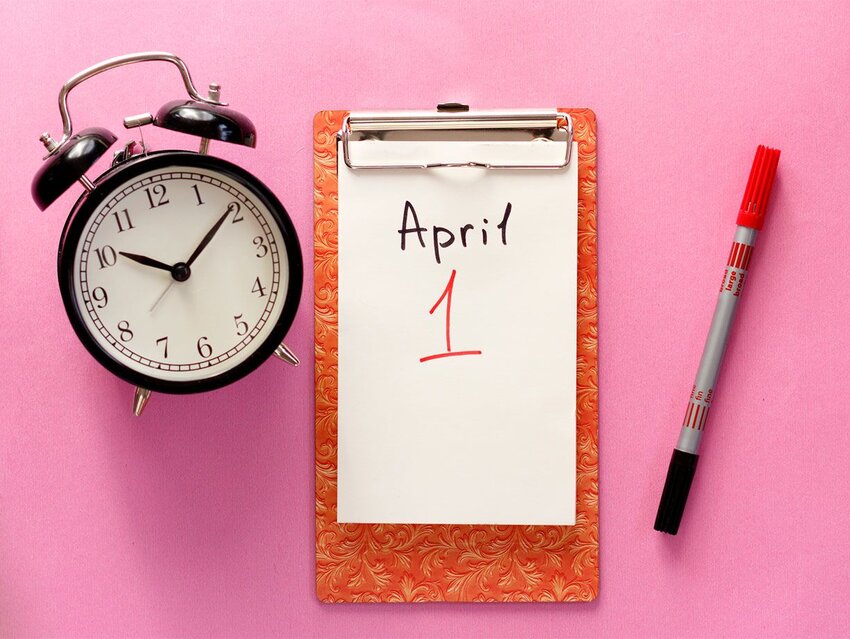You don’t need to plastic-wrap the toilet or replace the filling of Oreos with toothpaste to get a laugh this April Fools’ Day. Instead, there are plenty of silly turns of phrase and forms of wacky wordplay to keep you chuckling. These idioms and puns have been making people laugh for hundreds of years.
Fool Me Once
The true origin of April Fools’ Day is a mystery, but some historians believe it traces back to the 16th century when France began to use the Gregorian calendar. Before then, the new year started in March. Folks were slow to change to the January 1 start of the calendar, and the spring celebrators were ridiculed.
A 1508 poem by Eloy d’Amerval may contain a literary reference to one of the first April Fools’ pranks. It talks about poisson d’avril, or “April fish.” Since there were more fish in spring, they were easier to catch — and an April fish was seen as more gullible. So, at the time, people pranked each other by sticking a paper fish on someone else’s back. The prank may not get the same laughs today, but it was pretty hilarious in the 16th century.
The Village Idiom
Idioms are phrases with a nonliteral meaning, and sometimes they’re quite amusing, making them perfect to explore for April Fools’ Day. Since idioms are not intended to be interpreted with a word-for-word meaning, they can conjure up all kinds of hilarious images to make their point:
When Pigs Fly
If something will happen “when pigs fly,” it will never happen. This facetious idiom means it’s impossible, because pigs don’t sprout little wings and soar through the air. (“Are you going to call your ex-boyfriend?” “When pigs fly!”)
Bull in a China Shop
Someone who is reckless in a delicate situation is just like a bull in a china shop — very likely to make a huge mess, either literally or figuratively. (“Jimmy was like a bull in a china shop during the meeting to negotiate the final offer.”)
Best Thing Since Sliced Bread
This carb-loaded idiom is the way to go if you want to say something is innovative. However, sliced bread was invented and marketed in the 1920s — so this phrase might be getting a little stale. (“A foldable smartphone? That’s the best thing since sliced bread.”)
Pun Intended
April Fools’ Day is also the perfect occasion to celebrate some classic wordplay. Puns are jokes that exploit the different meanings of a word or words that sound alike but have different definitions. Here are a few examples of historical and literary puns:
“We must all hang together, or assuredly we shall all hang separately.”
Benjamin Franklin was famous for his witticisms, and he reportedly quipped this at the signing of the Declaration of Independence. He used two meanings of the word “hang” to send a clear message — the Founding Fathers could stick together … or face dire punishment together.
“Denial ain’t just a river in Egypt.”
This is often falsely attributed to Mark Twain, but there’s no evidence that “America’s Best Humorist” ever said it. Whoever said it first, the play on words comparing the Nile River with the word “denial” elevates this quip into a nearly perfect pun.
“We Polked You in ’44, We Shall Pierce You in ’52.”
In 1852, Franklin Pierce was elected the 14th President of the United States, thanks in part to this punny campaign slogan that compared him favorably to the popular previous President James Polk. Maybe modern presidential candidates should incorporate more puns into their campaigns.
Featured image credit: Anna Cinaroglu/ iStock

